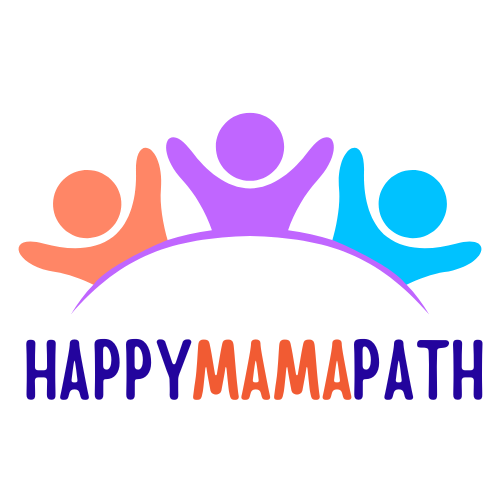In a world where learning never stops, educational apps for adults are the secret sauce to leveling up skills and knowledge while dodging the classroom snooze-fest. Gone are the days of dusty textbooks and dreary lectures; now, adults can dive into a universe of knowledge right from their smartphones. Whether it’s mastering a new language or finally understanding how to fix that pesky leaky faucet, there’s an app for that.
Imagine sipping your morning coffee while conquering calculus or brushing up on your cooking skills during lunch breaks. With these apps, education fits into life, not the other way around. So why not embrace the fun side of learning? The right app might just turn that brain fog into a bright light bulb moment. Let’s explore some of the top contenders that promise to make adult education as engaging as binge-watching your favorite series.
Table of Contents
ToggleOverview Of Educational Apps For Adults
Educational apps for adults continue to gain popularity, transforming the way individuals approach learning and skill development. Many of these apps offer a diverse range of subjects, including languages, finance, cooking, and coding. Flexibility stands out as a significant advantage, allowing users to engage with content anytime and anywhere.
Mobile learning aligns well with busy adult lifestyles, providing opportunities to learn during commutes or breaks. Results demonstrate that adults become more motivated and engaged through interactive features like quizzes and games. Personalized learning paths further enhance experiences by enabling users to focus on specific skills and topics.
Top educational apps often capitalize on multimedia content, presenting lessons through videos, podcasts, and interactive exercises. Metrics from various studies show that users retain information more effectively with diverse formats. Popular examples include apps like Duolingo for language acquisition and Skillshare for creative skills.
Gamification contributes significantly to user engagement, turning learning into a rewarding experience. Progress tracking in apps encourages users to set goals and celebrate achievements. Adults frequently prioritize finding resources that fit their learning styles, and these apps cater to diverse preferences.
Community features within certain apps enable learners to connect with peers, fostering collaboration and motivation. Recommendations from educational experts highlight that discussions and social interactions help consolidate knowledge. Embracing educational apps offers adults an innovative and efficient way to enhance their skills while balancing personal and professional responsibilities.
Benefits Of Using Educational Apps

Educational apps offer significant advantages in the learning process for adults. These tools provide accessibility and engagement, enabling users to effectively enhance their education.
Enhancing Learning Flexibility
Learning flexibility stands as one of the key benefits of educational apps. Users can study at their convenience, whether during a commute or while waiting in line. With the ability to choose topics of interest, adults can focus on what matters most to them. Customizable schedules help integrate learning into busy lives, making progress more achievable. Quality apps like Duolingo and Skillshare allow users to pursue languages or creative skills without time constraints. The integration of multimedia elements further supports varied learning styles. Overall, this flexibility accommodates individual lifestyles and promotes consistent engagement.
Encouraging Lifelong Learning
Lifelong learning gains momentum through educational apps. These platforms inspire curiosity and foster the pursuit of new knowledge. Engaging content keeps motivation high, making learning enjoyable rather than daunting. Progress tracking features encourage users to achieve personal goals and celebrate milestones. Additionally, community forums within certain apps connect users, promoting collaboration and shared experiences. Users continually expand their skill sets, staying competitive in an ever-evolving job market. Through these efforts, educational apps play a vital role in shaping a culture of ongoing education.
Popular Educational Apps For Adults
Educational apps offer a wealth of options for adults looking to enhance their knowledge and skills. These apps cater to various interests, making learning accessible and enjoyable.
Language Learning Apps
Language learning apps stand out for their interactive features. Apps like Duolingo combine fun elements, such as gamification, with structured lessons. Designed to fit busy lifestyles, these apps allow users to practice anytime, whether on a commute or during a lunch break. Babbel focuses on conversational skills, ensuring learners can engage in real-world discussions. Rosetta Stone enhances immersion through visual aids and voice recognition technology. Each app provides personalized learning paths, allowing users to progress at their own pace, which increases retention and engagement.
Skill Development Apps
Skill development apps target a diverse array of competencies. Platforms like Skillshare and Udemy offer courses on subjects ranging from photography to coding. Users can learn from industry experts through video tutorials and hands-on projects. Coursera collaborates with universities to provide professional courses, ensuring high-quality content. MasterClass brings celebrity instructors, making lessons entertaining and insightful. Each app emphasizes flexibility, enabling learners to set their schedules and focus on areas of interest. With progress tracking, users can monitor achievements and stay motivated in their continuous learning journey.
Evaluating Educational Apps
Evaluating educational apps requires a systematic approach to ensure they meet user needs effectively.
User Interface And Experience
User interface design plays a crucial role in an app’s success. A clean layout and intuitive navigation enhance learning, allowing users to concentrate on content. Visual appeal also matters; engaging graphics keep learners interested over extended periods. Responsiveness on various devices, like smartphones and tablets, ensures accessibility. Customization features help personalize the experience, catering to individual preferences. Apps with clear instructions and support options further improve usability. Users often favor apps that blend functionality with aesthetic appeal to maintain motivation.
Content Quality And Relevance
Content quality is vital for user engagement. High-quality educational apps provide accurate information, aligning with trending topics and demands. Diverse teaching methods, including videos and interactive exercises, enrich the learning experience. Relevance to users’ personal and professional goals helps maintain their interest. Apps that frequently update their content ensure users receive the latest knowledge in their fields. Educational material sourced from reputable institutions enhances credibility and trust. Users benefit significantly when content is tailored to adult learners, addressing both practical skills and theoretical knowledge.
Embracing educational apps marks a significant shift in how adults approach learning. These tools not only make education accessible but also enjoyable and engaging. By integrating learning into daily routines, adults can enhance their skills without the constraints of traditional classrooms.
The variety of available apps ensures there’s something for everyone, whether it’s mastering a new language or developing a professional skill. With features that promote interaction and community engagement, users are more likely to stay motivated and committed to their learning journeys.
As technology continues to evolve, educational apps will play an increasingly vital role in lifelong learning, providing adults with the resources they need to thrive in an ever-changing world.



